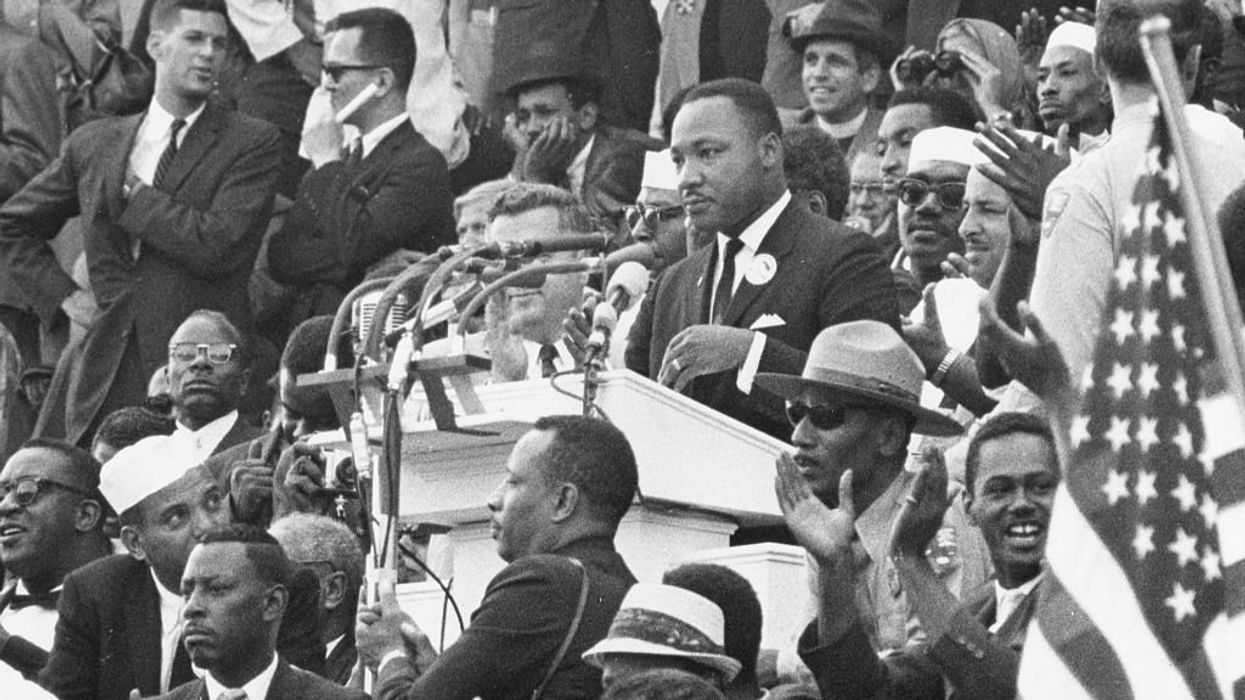Part XXXIV: An Open Letter to President Trump from the American People
Dear President Trump,
You know, we speak the truth when we say that politics is all about messaging. Your campaign message—about a “limping economy” and a “permeable border”—resonated with the electorate. Vice President Harris’ about “to-do lists” and “enemies lists” did not. Your message about “America First” was triumphant; Harris’ about the supposed threat to democracy? Less so.
And that is why your message today—on Inauguration Day—is so crucial to the future of this country we love.
Today marks the third time in history that Inauguration Day intersects with Martin Luther King Jr. Day, the national holiday commemorating the incomparable life of America’s civil rights paragon. The first time it occurred was in 1997 when President Bill Clinton was sworn in to begin his second term. Sixteen years later, President Obama took the oath on that same celebrated holiday.
Both presidents chose to honor Reverend King in their own unique style. President Clinton looked out onto the Lincoln Memorial and echoed King’s famous oration. “Thirty-four years ago,” Clinton declared, “the man whose life we celebrate today spoke to us down there at the other end of this Mall in words that moved the conscience of a nation. Like a prophet of old, he told of his dream that one day America would rise up and treat all its citizens as equals before the law and in the heart.” Moving words, to be sure.
President Obama likewise stirred a nation by reciting the oath with his left hand firmly planted on two Bibles, Abraham Lincoln’s and Martin Luther King Jr.’s. That message was obvious. America’s first Black President deliberately and humbly channeled America’s two greatest guardians of racial equality.
President Trump, you have a unique opportunity on this day. Inaugurations are momentous occasions, ones where each and every presidential move is closely scrutinized and carefully analyzed. The occasion to deliver a resonate message inspired by Dr. King will not so fittingly come again.
Perhaps you could make some nod to Dr. King in your inaugural address. You could invoke America’s Gandhi on the theme of injustice: “injustice anywhere,” King believed, “is a threat to justice everywhere.” Or you might summon Dr. King on the topic of peace: “true peace is not merely the absence of tension; it is the presence of justice.” Or how about the issue of privilege and power? “I am not interested in power for power’s sake,” the civil rights leader intoned, “but I’m interested in power that is moral, that is right, and that is good.” Or perhaps you just want to keep it simple. Among the most modest and powerful words ever spoken by an American came from the lips of Dr. King: “we cannot walk alone,” he said when faced with the uphill climb to a racially pure nation.
At the very least, though, we think you must acknowledge King’s importance to America’s struggle over inequality. Somehow. You must. Please.
At a time when race relations are at a twenty-first century low, all of us should recognize that the desire for the elevated equality imagined by Reverend King has yet to be realized, that discrimination—both informal and formal—still persists. Your voice is louder than ours; indeed, it is louder than almost any across the globe. We beseech you to use it on this day to remind all of Dr. King’s legacy, his sacrifices, his greatness.
While issuing Proclamation 5927 five years after he signed into law legislation declaring the national holiday, President Reagan described the civil rights warrior in extraordinarily poignant language. Martin Luther King Jr., Reagan remarked, was a “drum major for justice,” someone who taught us with “unflinching determination,” who had “complete confidence in the redeeming power of love,” and whose “utter willingness to suffer, to sacrifice, and to serve” shall forever inspire a nation. It’s time to echo the 40th president.
And the 42nd. “Martin Luther King’s dream was the American dream,” President Clinton concluded in his 1997 inaugural address. Truer words have never been spoken. We implore you, Mr. President, to reaffirm that deeply profound message. For all of us.
Godspeed, Mr. President.
The American People
Breslin is the Joseph C. Palamountain Jr. Chair of Political Science at Skidmore College and author of “A Constitution for the Living: Imagining How Five Generations of Americans Would Rewrite the Nation’s Fundamental Law.”




















Trump & Hegseth gave Mark Kelly a huge 2028 gift